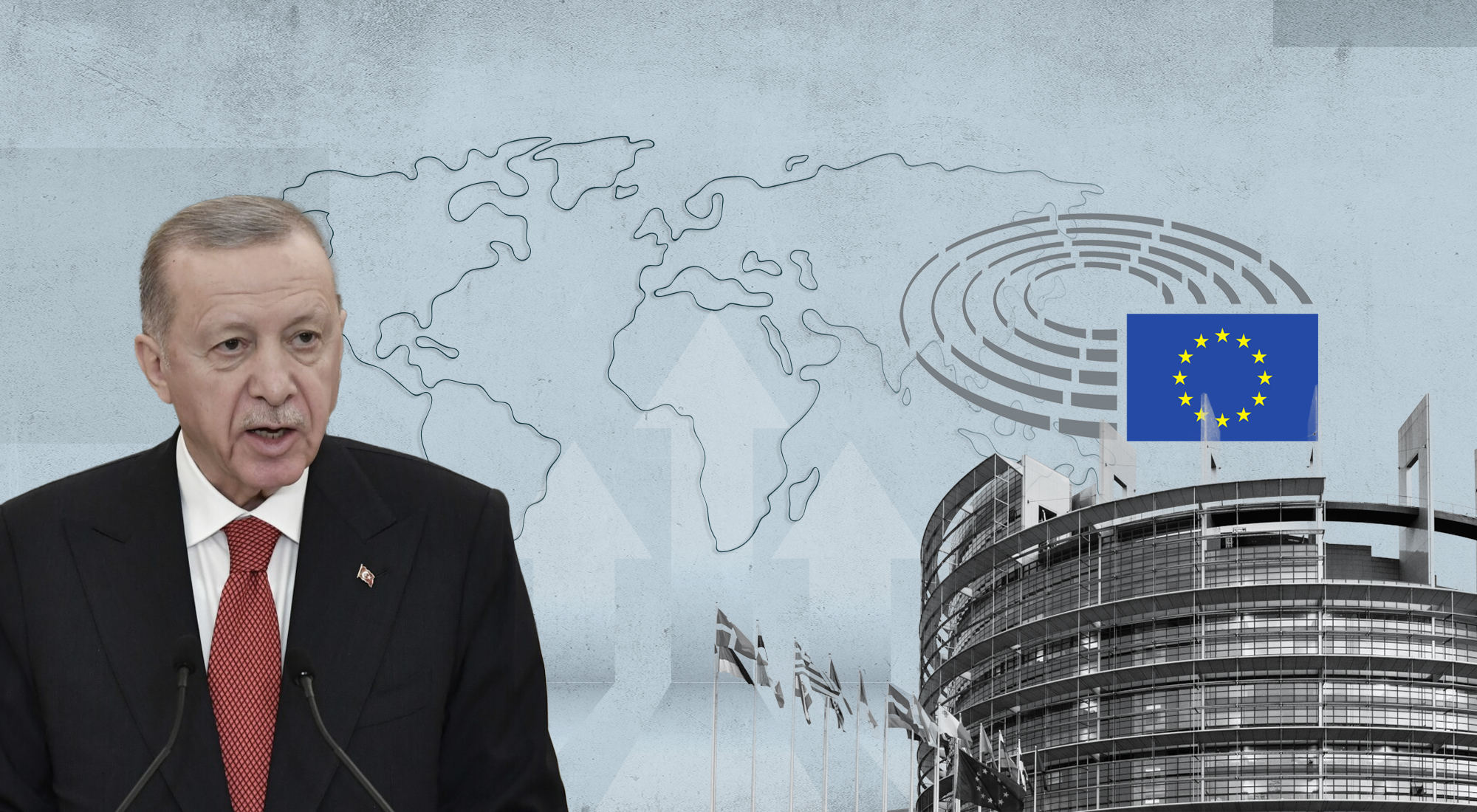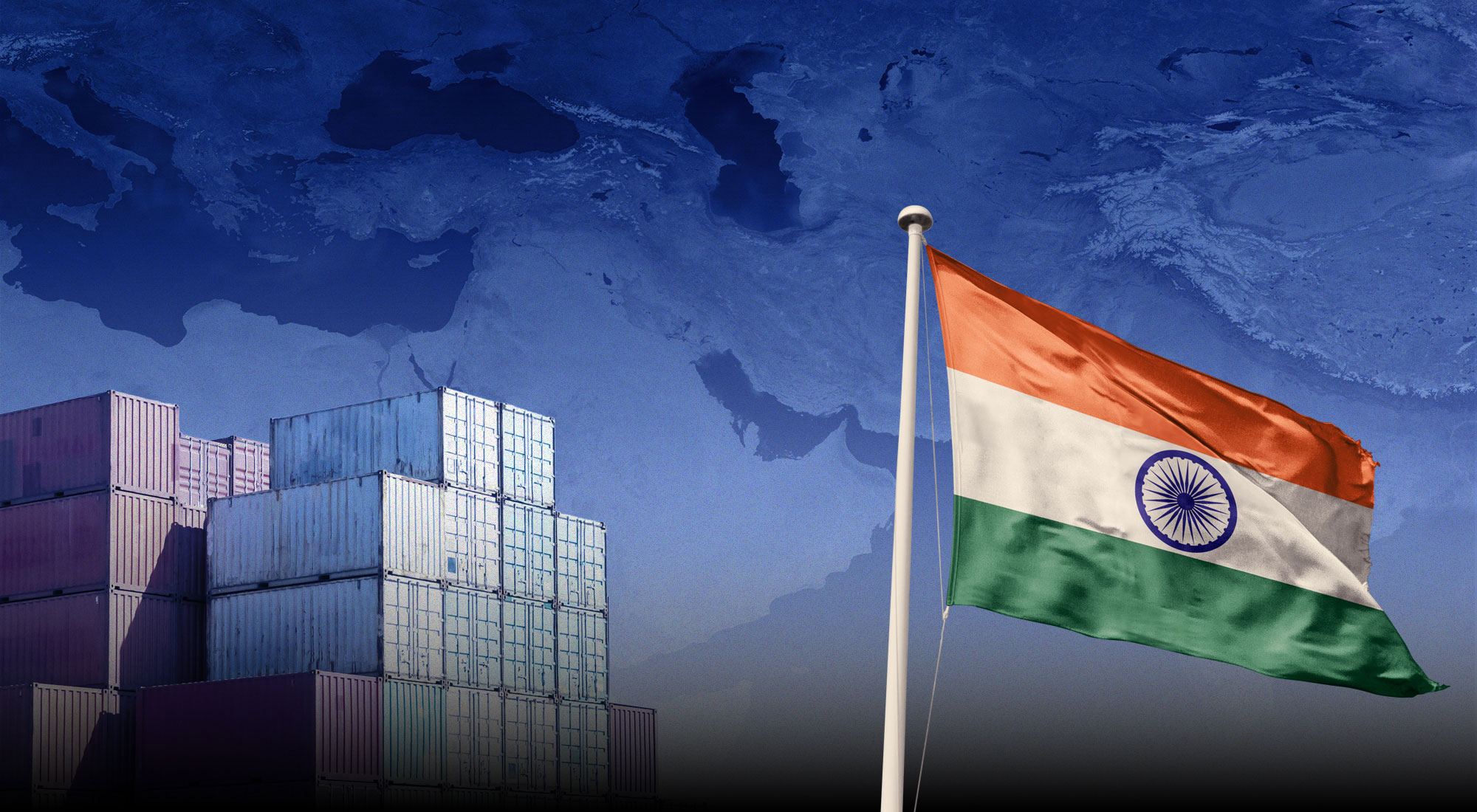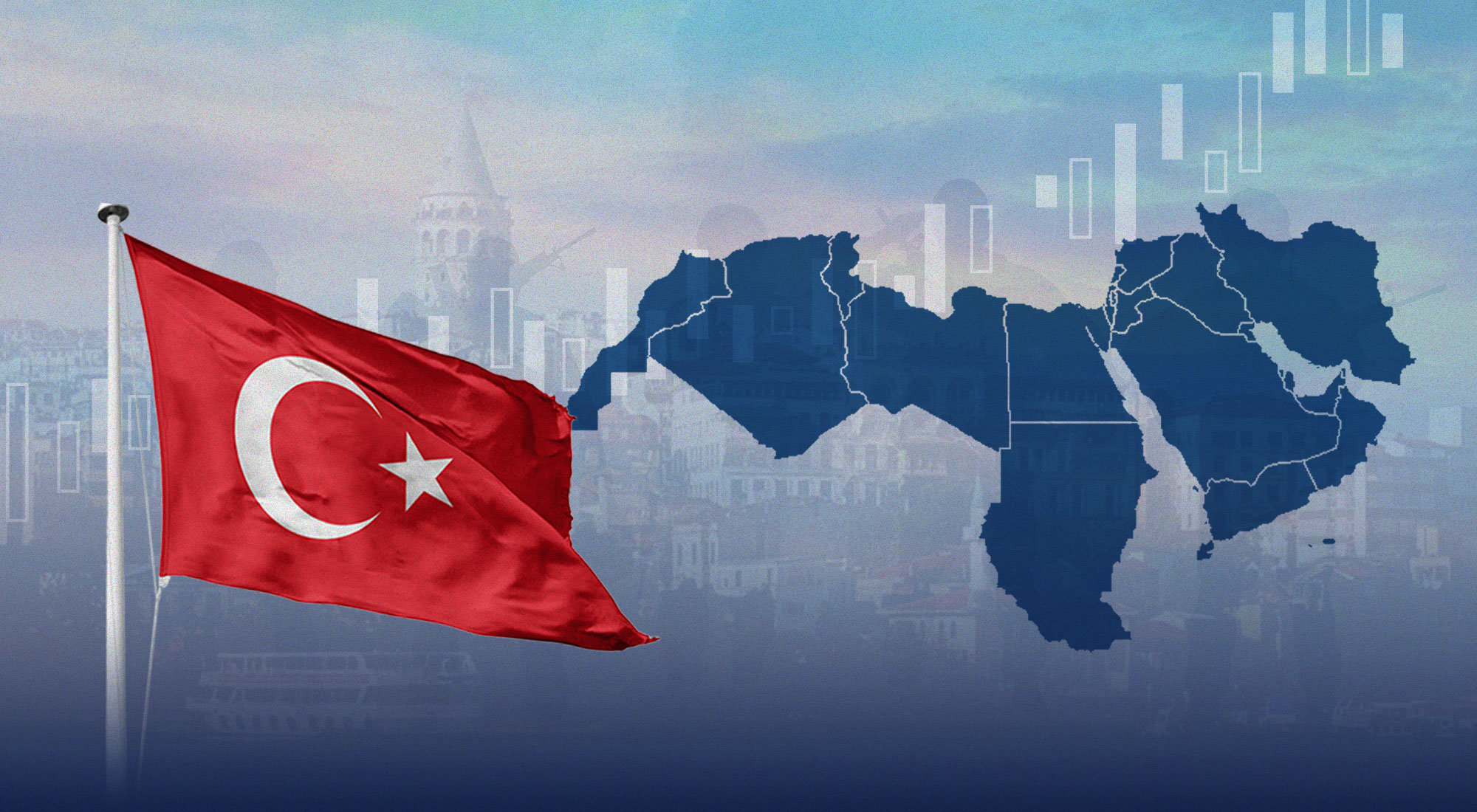Türkiye and the European Union (EU) continue to navigate a vital yet increasingly transactional relationship. Türkiye’s membership talks have in effect been frozen for the past decade. Brussels has continuously reported increasing censorship, authoritarian tendencies, and a deterioration in the rule of law in Türkiye. From the EU’s point of view, Türkiye has strayed from European integration and in effect is only an EU candidate in name. Stalled membership talks, however, point to more than a discord due to democratic backsliding and domestic decision-making in Türkiye. The EU and Türkiye are also engaged in a geopolitical rivalry across several regional and global fault lines, with Ankara’s geopolitical posturing often putting it at odds with European leadership.
Türkiye’s regional policy, particularly its activist energy and security policy in the Eastern Mediterranean, has seen rivalries re-surface since 2016. The EU’s leadership has remained committed to Greek and Greek Cypriot positions as Türkiye has increased its strategic footprint in the area and acted more assertively to protect its interests in maritime zones. Nonetheless, most EU member states and Türkiye are NATO allies and remain committed to mutual security via the transatlantic fold. Türkiye also remains critical to EU-wide goals over border security and curbing illegal migration, especially in the aftermath of the unfolding Syrian quagmire. The Türkiye-EU mechanism on migration, although controversial, remains effective as the bloc faces continued migrant pressures and political unrest at home with the rise of far-right/extremist parties across the continent. Half of all Turkish exports continue to be destined for EU markets, and Türkiye benefits from membership in a customs union with the EU, leading to European products entering the Turkish market on favorable terms. Key European states such as Spain have large stakes in the Turkish financial services sector as well, bounding the relationship in a robust, multi-layered economic partnership that contributes to an immense portion of the Turkish economy.
Amidst global events, such as the Ukraine-Russia war, the Syrian civil war, and conflicts in Africa, there is a need to reassess the Türkiye-EU relationship. While little impetus exists on membership talks on either side, the two parties can continue to cooperate on regional and global challenges, most notably on humanitarian issues but also trade and investment. Developments in Syria related to the fall of Bashar al-Assad and the incoming Trump administration in the U.S. are the two factors shaping the next several years of the Türkiye-EU relationship. As the EU looks to find a less friendly actor in the White House, the bloc’s ties to Türkiye are likely to gain precedence. While Türkiye is eyeing opportunities in the Trump era, ties to the EU will still be significant as a form of balancing act with the U.S. where conditions necessitate. Moreover, while Türkiye-U.S. ties in the field of defense industry leave much to be desired because of Türkiye being under the Countering America’s Adversaries Through Sanctions Act (CAATSA), the relationship with the EU is flourishing. Recently, reports emerged of a preliminary request from Türkiye to acquire 40 Eurofighter Typhoon fighter jets from a consortium led by the UK, Spain, Italy and Germany. Also, Türkiye’s Baykar[1] Industries, the largest manufacturer of Turkish-made Unmanned Aerial Combat Vehicles (UCAVs), is moving to acquire the Italian aerospace manufacturer Piaggio Aerospace, which will boost its capabilities in developing propulsion technologies and building indigenous engines for drones. This is complemented by the fact that several EU member states are already clients of Baykar’s UCAV programs.
This insight sets out a projection for the development of Türkiye-EU ties across several areas, arguing that the transactional relationship can be built to accommodate a strong and multifaceted partnership.
The New Syria, Türkiye, and the EU
The fall of the Assad regime in Syria creates new opportunities for the Türkiye-EU relationship. With Assad’s fall, European states have already begun amending their asylum procedures accordingly. Migration from Syria remains a major public policy challenge for EU governments, with the system overstretched and the issue of migration extremely politicized, especially as economic conditions deteriorate. The European establishment has weakened due to migration pressures on the political system, which necessitated the EU-Türkiye migration accords of 2016. Now, the EU could potentially tackle the question of migration far more comprehensively yet will require Türkiye’s assistance to do so.
Türkiye and the EU are likely to spearhead reconstruction efforts in Syria, which is a strategy that both parties see as essential to the process of returning migrants. While the Assad regime has indeed been ousted, Syrian cities remain destroyed and public infrastructure remains inadequate. Combining the EU’s aid mechanism and Türkiye’s logistical capabilities emerges as a reasonable route to rebuild the country and reverse the tide of immigrant flows. While visiting Ankara recently,[2] Ursula von der Leyen, the President of the European Commission, promised a further 1 billion Euros to aid the EU-funded Syrian migrant program in Türkiye. While these programs have some value for rehabilitating the lives and livelihoods of migrants, more concentrated efforts are required by member states to ensure lasting impact.
This could come in the form of a fund for reconstruction, with several European agencies and bodies, such as the European Bank for Reconstruction and Development (EBRD), taking charge. Turkish firms could then be contracted to carry out reconstruction efforts in Syria. Logistically, Türkiye is the only viable contender for the rebuilding process in the short term as it will have the easiest access to Syria owing to geographic proximity. Indeed, following Assad’s fall, Turkish construction companies listed on the Istanbul Stock Exchange[3] (BIST) rallied, with investors expecting that Türkiye would lead such efforts.
Türkiye has already made inroads into the Damascus government on this front, and several Turkish government departments are reported to be drafting plans over construction and public infrastructure, such as rebuilding the Syrian portion of the Istanbul-Damascus railway that once formed an important link in the famous “Hejaz Railroad” during the Ottoman era.[4] It is natural that the EU should take an interest in these plans, as it serves the European agenda of securing their external borders, limiting migration pressures, and diversifying trade routes. Aiding in efforts to stabilize and rehabilitate Syria will make for a better strategy in this respect than simply allocating limited resources to civil society groups in Türkiye and other third countries to aid Syrian migrants. There is great potential now for the EU to take a bold stance in leading the Western world in aiding Syria to emerge from the destruction of a civil war that lasted for over a decade. Türkiye and the EU can greatly cooperate in that respect.
Türkiye and the EU Under the Trump Administration
The return of Donald Trump to the White House is a nuanced issue both for Türkiye and the EU. The Europeans are clearly wary of some of Trump’s earlier policies and recent campaign promises. With Trump persistently advocating for a hostile trade policy to balance the EU-U.S. portfolio on exports and imports, Europeans may find a difficult four-year process ahead. This could prompt closer ties with Türkiye and be a catalyst to modernize the customs union agreement. Türkiye, on its part, seems to be entertaining the prospect that Trump could be more amenable to Ankara’s concerns over U.S. support for the Syrian Democratic Forces (SDF)—which are dominated by the People’s Defense Units (YPG)—an offshoot of the Kurdistan Workers’ Party (PKK), a U.S. and EU-designated terrorist group that has been waging an insurgency against the Turkish government for the last four decades.
European concerns over Trump are not simply limited to an emerging trade war with the U.S. The EU’s elites are skeptical of Trump’s position on Ukraine amidst the ongoing war with Russia. Owing largely to robust political backing from Washington under Joe Biden, EU states have reversed former policies on engaging Russia and have instead opted for a policy of sanctions, limited diplomatic engagement, and efforts to further integrate Ukraine into the European system. This policy has been somewhat controversial in EU member states, which are again facing backlash from a surge of migration from Ukraine and far higher energy costs due to the end of natural gas imports from Russia. A sudden shift in U.S. policy on the issue could further exacerbate these trends. With Trump promising to seek immediate peace between the warring sides and with some senior Trump-aligned actors implicated as being close to the Kremlin, the EU could face a major geopolitical challenge.
On both issues, trade and the war in Ukraine, further Türkiye-EU cooperation offers a viable route to alleviate some concerns. Türkiye is already a significant player in Ukraine and continues to pursue dialogue with Moscow on strategic issues. Türkiye has also made considerable investments in Ukrainian security, with Turkish-made UCAVs persistently utilized in the conflict. In the scenario that the U.S. moves to reconsider support for Ukraine, Türkiye’s position will emerge as key. The EU’s effort to constrain Russia will require support from Türkiye, which can engage both Moscow and Kyiv simultaneously. As the U.S. disengages from the conflict, Türkiye could become the nexus of negotiations between the two sides. The EU will require Türkiye’s access to Russia when the time for political negotiations begins.
On trade, the EU’s power stems from its form as a unified trading bloc. In part, Türkiye is integrated into this bloc via the customs union, a dated mechanism that allows the tariff-free flow of goods between Türkiye and the EU with notable exceptions.[5] Türkiye has been arguing for the customs union to be reformed, which excludes key sectors such as agriculture, services, and e-commerce. The 1996 agreement between the two blocs no longer serves modern trading interests, and while it has enabled Turkish exporters to access the European market on a massive scale, it has also constrained Türkiye, binding it exclusively to European trade policy in which Ankara has no input.
With Europe facing the imminent pressures of the Trump administration, improving ties with Türkiye would significantly increase the bloc’s bargaining capacity. The EU is seeking to act as a bloc in countering the weight of the U.S. in a relationship that has traditionally skewed in favor of Washington. While Türkiye is not a full member of the EU, Ankara nevertheless exercises membership in key European institutions and is an indispensable member of NATO. Further integration[6] with Türkiye at the geopolitical level would greatly enhance the EU’s position via the U.S. Trump’s second term in the White House could become the event triggering this foreign policy transformation.
Defense Cooperation
Türkiye and the EU are emerging defense partners, with the trend set to vastly increase over the next several years. Many EU members, which are also members of NATO, are making extensive acquisitions from Türkiye’s homegrown defense industry. This includes key states in Central and Eastern Europe such as Romania, Poland, and several of the Baltic States. New members of the EU and NATO from the former Eastern Bloc appear to be utilizing Türkiye’s defense industry to overcome their vulnerabilities and anxieties related to Russia. Türkiye’s defense market remains accessible, has major export capacity, and is delivering products with high demand.
Türkiye is also branching out to other European states. Baykar Industries’ acquisition of Piaggio Aerospace marks a significant event for the Turkish defense industry, with a Turkish firm purchasing a European aerospace manufacturer for the first time. In addition, Spain and Türkiye have signed a memorandum of understanding on the sale of Turkish-produced Hürjet[7] fighters. The agreement also encompasses a co-production clause, which would see the Hürjet units assembled in Spain with some input from Spanish defense companies. Also, Portugal’s order to procure two logistic supply vessels for its navy from the Turkish shipbuilding firm STM marks a major cornerstone and helps demonstrate the rising level of mutual confidence. These developments indicate an ongoing process of sound integration between the Turkish and European defense industries, now openly manifesting in the form of acquisitions and joint ventures. Soon, Türkiye can be expected to be selling defense products to all major European countries, with Ankara having branched out to both Eastern and Western Europe.
Türkiye remains interested in purchasing Eurofighter Typhoons. Recently, Germany was reported to have ended its reservations on the sale.[8] The entire Eurofighter consortium, consisting of Germany, the UK, Italy, and Spain, now appears to back the sale of 40 Eurofighter units to Türkiye. This is a significant development as Türkiye is moving to diversify its air force. Türkiye’s fleet is dominated by the aging F-16 units produced by Lockheed Martin, with Ankara and Washington recently coming to an agreement for the further sale of 40 additional units of the fighter aircraft. In the current setting, Türkiye is bound to operate U.S.-manufactured aircraft, a predicament that has often caused major complications under strained political relations time and again. Türkiye’s defense acquisitions from the U.S. have been met by severe Congressional oversight, and Türkiye has often faced major delays or rejections on defense needs. Türkiye also remains expelled from the F-35 program by the virtue of CAATSA-related sanctions.
Becoming a significant operator of Eurofighter Typhoons will be a welcome development for the Turkish defense industry if the sale does go through, diversifying the F-16-dominated Turkish Air Force and serving as a much-needed bridge solution until Türkiye’s indigenous fifth-generation fighter jet, MMU KAAN, becomes combat-ready in the 2030s. Türkiye could also join the Eurofighter consortium and potentially seek an agreement for joint manufacturing where parts of the aircraft are produced and assembled in Türkiye. With the future of the Türkiye-U.S. defense relationship uncertain, given that CAATSA remains in effect and that Türkiye is barred from the F-35 program, Europe could be emerging as Türkiye’s key defense partner for the longer term. This also aids in Türkiye balancing its relationship with the U.S. This could be particularly significant under the Trump administration, as Trump might seek to keep Türkiye in the U.S. defense industry orbit as Ankara makes significant overtures to Europe over sales and acquisitions.
Conclusion
There is little indication that Türkiye’s membership negotiations with the EU will resume, at least in the short term. Türkiye and the EU are no longer bound by a common goal of Turkish membership but are rather on course to further deepen an existing transactional relationship. This appears to be serving both sides aptly now. Developments in Syria, the second term of Donald Trump, and Türkiye’s growing interest in the European defense industry are all factors that are set to add new layers to the Türkiye-EU relationship.
Indeed, there are still great challenges between Ankara and Brussels. The EU, mostly, is skeptical of Türkiye’s activist foreign policy. EU member states such as Greece, the Republic of Cyprus, and France are wary of what they perceive as the proliferation of Turkish influence across the Eastern Mediterranean. Key EU states have given refuge to individuals being sought by Turkish authorities for membership in terrorist organizations, signifying a discord in the security perceptions of the two parties. Yet there are also vast opportunities, even in the lack of a clear values-based policy integration between the two sides.
Türkiye as an emerging power is valuable for the EU as a partner, particularly as Brussels will now have to unify against a more demanding presence in Washington. With the EU seeking to avert or at the very least contain a crisis with the Trump administration, relations with Türkiye appear key in this endeavor. As Trump could possibly shift U.S. policy on Ukraine, Türkiye’s position in the conflict will become even more significant. Moreover, the further integration of Türkiye’s and the EU’s defense markets is a positive development for both parties. Türkiye is diversifying its defense outreach while the EU is benefiting from Turkish defense imports, which are key in addressing the bloc’s security requirements.
The paradigm of transnationalism in the Türkiye-EU relationship began with the 2016 migrant readmission agreement, tackling illegal migration into the bloc primarily from Syria and other countries via Türkiye. While the topic of Syria and migration remains significant, particularly as both Türkiye and the EU have an interest in stabilizing the country and aiding in its economic development, the relationship has also expanded. Türkiye and the EU have the potential to align on major geopolitical matters, and political shifts in the U.S. are likely to bring this about.
[1] Gokhan Ergocun, “Baykar acquires Italian aviation giant Piaggio Aerospace,” Anadolu Agency, December 27, 2024, https://www.aa.com.tr/en/europe/baykar-acquires-italian-aviation-giant-piaggio-aerospace/3435857.
[2] “No future for terrorists in region, Erdoğan says in Syria talks,” Daily Sabah, December 17, 2024, https://www.dailysabah.com/politics/diplomacy/no-future-for-terrorists-in-region-erdogan-says-in-syria-talks.
[3] Taylan Bilgiç, “Turkish Building Stocks Surge on Syria Reconstruction Bet,” BNN Bloomberg, December 9, 2024, https://www.bnnbloomberg.ca/investing/2024/12/09/turkish-building-stocks-surge-on-syria-reconstruction-bet/.
[4] Gzt, “Türkiye, Suriye’deki Osmanlı yadigarı Hicaz Demiryolu’nu restore edecek,” Text, Gzt (Gzt, December 25, 2024), https://www.gzt.com/mecra/turkiye-suriyedeki-osmanli-yadigari-hicaz-demiryolunu-restore-edecek-3791890.
[5] “Türkiye key to EU’s strength in Trump’s 2nd term,” Hürriyet Daily News, November 27, 2024, https://www.hurriyetdailynews.com/turkiye-key-to-eus-strength-in-trumps-2nd-term-203039.
[6] Mehmet Yegin and Salim Çevik, “From Biden to Trump: Waning Turkish‑American Relationship Demands Greater European Engagement,” SWP, December 9, 2024, https://www.swp-berlin.org/publikation/from-biden-to-trump-waning-turkish-american-relationship-demands-greater-european-engagement.
[7] Miquel Ros, “Spain to explore participation in Turkish Hürjet advanced jet trainer program,” Aerotime, December 23, 2024, https://www.aerotime.aero/articles/spain-to-explore-participation-in-turkish-hurjet-advanced-jet-trainer-program.
[8] “Germany approves sale of 40 Eurofighter Typhoon jets to Türkiye,” Türkiye Today, November 13, 2024, https://www.turkiyetoday.com/turkiye/germany-approves-sale-of-40-eurofighter-typhoon-jets-to-turkiye-78262/.








